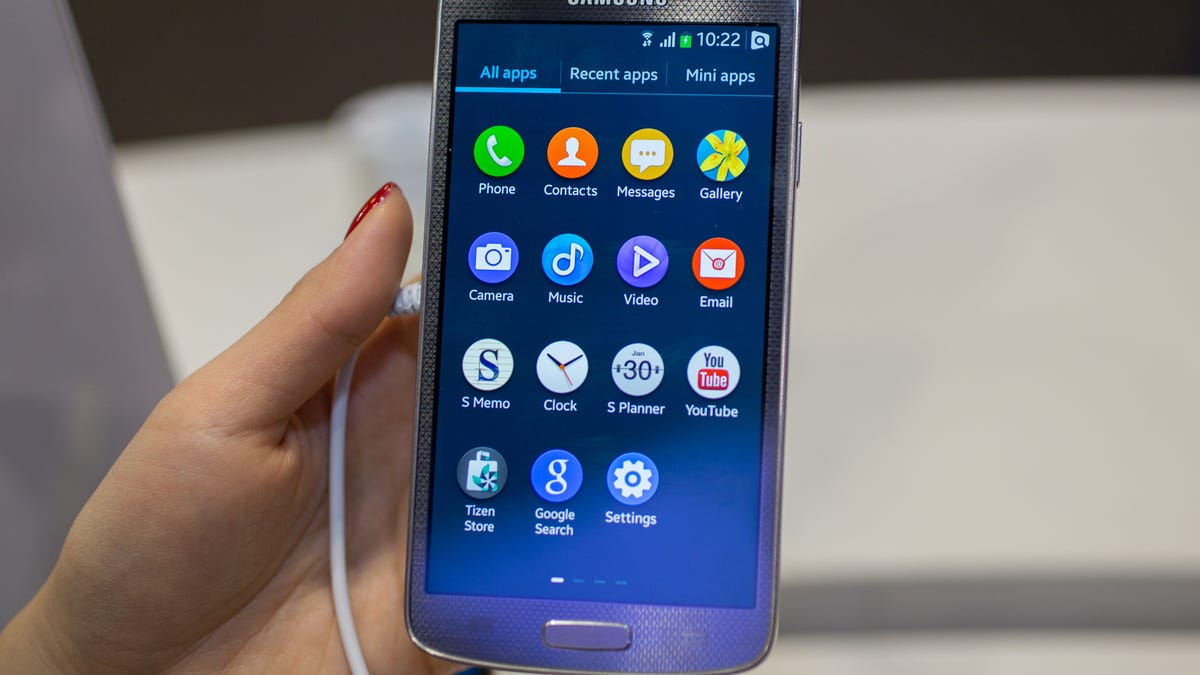One year on, Tizen has its sights set on smartwatches and cars
A year after Samsung first showed Tizen on a phone, CNET looks at where the open-source OS stands now and where it's headed next.

Samsung made a splash at last year's Mobile World Congress by showing off the first reference device running not Android, but Tizen OS, an open-source operating system created by Samsung and Intel, among others. A year on at MWC 2014, what has changed for Tizen?
The year has seen big changes, not in the look and design of the software, but in its application. While last year, headlines shouted about Samsung running Tizen on its phones, Tizen has since become something of a poster child as the OS of choice for various connected devices and wearable tech.
This week, Samsung unveiled its latest smartwatch lineup, the
You'll also find Tizen inside Samsung's NX300M camera and Intel is using Tizen as the software behind its next-generation of in-car entertainment services which will see its way into Land Rover cars, among other yet-to-be-announced manufacturers. Samsung has also announced that its first Tizen-based phone will be released later this year, although no further details have been discussed.
That's not all though. Tizen explained that we'll likely see the OS pop up in connected home technology from fridges to thermostats. Being installed on such a wide array of product categories might seem like a pretty big challenge, but Tizen is confident that it's the right choice for companies to make.
The main benefit of Tizen on these devices, the company told me, is the open-source nature of the software. The Tizen Foundation does not hold strict control over the software, meaning that any manufacturer can bend the OS to its needs, be it for a phone, a car, or a microwave. It's highly customisable too, allowing for a wealth of design tweaks on the interface -- indeed, Samsung's demo of its version of Tizen shared various aesthetic cues to its TouchWiz interface found on its Galaxy range. Tizen's open approach also means that manufacturers are not obliged to include certain apps or services.
That customisation has attracted a whole host of interested companies. Since November last year, Tizen has acquired 51 new partners, including big names like eBay, ZTE, Sprint, Namco, and Sharp, working both on putting Tizen into products as well as developing apps for the platform.
Full CNET coverage of the 2014 Mobile World Congress
I went in for a closer look at the software running on a Galaxy-lookalike phone from Samsung. Like Android, the interface is based on various home screens, with app icons and live widgets -- called dynamic boxes -- being placed down. These boxes allow you to swipe down on them to bring up more information without needing to load an app.
It has a clean and functional look, and Samsung has added in a few tweaks such as the ability to bring up the camera app in a window floating over the top of the interface -- similar to the Pop Up Play feature on the Galaxy S4. Samsung is yet to officially confirm when Tizen will make an appearance on its phones, only saying that it'll be some time this year. While Tizen might be relatively unknown to the general public, having the biggest name in mobile pushing the software is bound to give Tizen a shot in the arm.
Whether Samsung and Intel's support of Tizen allows it to rise up and give Android a serious bit of competition remains to be seen next year.

